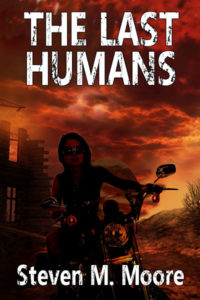“You must read…”
People often know I’m an author after they know I’m an avid reader—for one thing, I present myself that way. In polite conversation, somewhat rare in this politically charged environment, we often turn to culture, usually a safe topic. After chatting about movies and musicals—often not blockbusters, by the way, because I rarely see them—we often move on to books. Then comes the pat on the arm and the statement, “You must read….”
Here’s why I hate that expression: it reflects the business model of the NY Times Book Review. Out of curiosity, I sometimes look at a book review there. I all too often say, “This plot [and or characters] doesn’t [don’t] resonate with me.” Maybe these are just thoughts where I’m subconsciously wreaking revenge against the many agents who expressed something like this in their many rejections! But the books in that Review have gone through an extensive acquisition and editing process, so they must be better than other books, right? Wrong!
I’ve studied all that the Times will acknowledge about the way they select books for their Review. (I’m not talking about ads. The Times will take anyone’s money.) Even my old POD, Xlibris, has those—their authors paying exorbitant fees to have their books appear among a few dozen. Ugh! The Times’s selection formula suffers from the fatal flaw of American Idol and other audience participation mega-events: “voters” in this case are book buyers, but only ones selected by the Times who frequent a sampling of bookstores. How can a big city newspaper afford a secret and obscure sampling technique that supposedly determines a book that’s worthwhile to read. It can’t because they don’t have the staff for that. Their Review comes down to telling the American public “You must read…” without a damn thing to back it up.
Of course, the NY Times Review is just a toady of the Big Five publishing conglomerates, most of them located in Manhattan. I’m not against the paper in general, but “All the news that’s fit to print” doesn’t apply to books, and makes the Review ignoreable in my mind’s eye. I actually take pride in rarely reading books they recommend that the reading public should read. I’ve never paid attention to pop contests from American Idol and Dancing with the Stars to the Times’s book editors and their arcane sampling techniques. I’ll determine which books I want tor read, thank you.
To be fair, the Review isn’t the only culprit in this business. Amazon tries to force books down my throat, presumably based on my previous buying history, but they only use keywords and have never read the books. I also don’t trust those stacks in bookstores announcing “Books Selected by our Employees.” Why take anyone’s word for your book buying? You can browse in a bookstore and read cover material and peek inside. Even Amazon formalizes this a bit. Readers have all the tools that are needed to be educated book buyers. They don’t need anyone telling them what to read.
***
Comments are always welcome.

The Last Humans. Did you miss this post-apocalyptic thriller. Ex-USN and LA County Sheriff’s forensics diver emerges from a dive to find all her colleagues dead. She had to survive in this world, one of death and destruction. But maybe the remnants of the US government are more dangerous than the lack of food and water and feral humans? Available in ebook and print and ebook format at Amazon and the publisher, Black Opal Books, as well as in ebook format at Smashwords and all its affiliated retailers (iBooks, B&N, Kobo, etc.) Also available at your favorite bookstore (if they don’t have it, ask them to order it).
Around the world and to the stars! In libris libertas!

November 11th, 2019 at 10:04 am
Steven,
As I see it, the problem is that the big five publishers have a lock on the key review publications–perhaps because they have the money to advertise on them.
Smaller publishers often have just as good a quality product but because readers don’t learn about the books, orders are few. Libraries rely on the key review pubs for ordering purposes. And so the problem perpetuates.
November 12th, 2019 at 7:48 am
Jacqueline,
There’s that. The more we can convince readers that “smaller publishers often have just as good a quality product,” the happier we’ll all be. That goes for self-publishing too. The Big Five only snatch up a self-published book when it’s a huge success. But most Big Five books aren’t successful either because they promote their established authors. It’s a tough business!
r/Steve